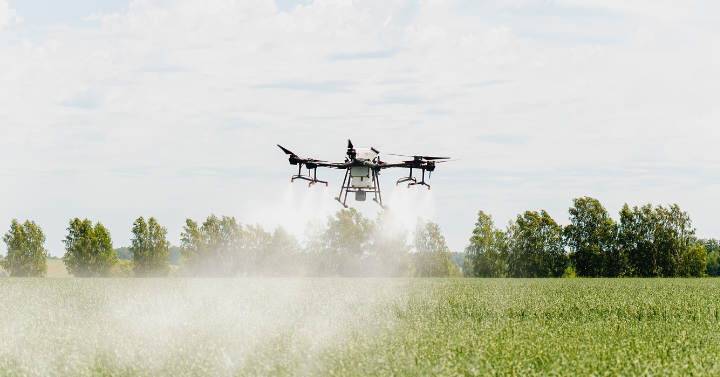Kline’s market research in the agrochemicals sector has highlighted intriguing developments for 2025. We are seeing a significant shift toward sustainable farming practices, driven by both regulatory pressures and consumer demand. Technology is playing an increasingly central role in agriculture, with precision farming and digital tools becoming indispensable for modern farmers. At Kline, we are at the forefront of these developments, providing insights and solutions that help our clients navigate the complexities of the industry.
Food Security
The world’s increasing demands for food amid the rapidly growing world population has challenged food producers and crop protection suppliers to produce more quality crops, while the amount of arable land continues to decrease.
With the world population now over 8 billion people, there are 2.33 billion or 28% who struggle with access to adequate food regularly and 864 million people who face severe food insecurity, with rural populations experiencing more difficulties with this. The most pronounced regions with food insecurity are Africa, Latin America, and the Caribbean (Source: Food and Agriculture Organization of the United Nations; FAOSTAT).
Arable land that can produce crops has declined around the world due to multiple reasons such as urbanization, soil erosion, climate change, deforestation, and pollution. In terms of food trends, demand for sustainable farming and organic crops is rapidly growing, thereby changing the inputs farmers use to produce quality crops and protect them from pests such as insects, diseases, and weeds.
Crop protection
Amid this backdrop, crop protection is crucial for maximizing crop yields and producing healthy, nutritious food.
Crop protection takes place along various stages of the crop production/storage process from seed treatment to foliar applications, further, to pest control when storing and transporting grains.
All along the process, herbicides, insecticides, fungicides, and nematicides are used to protect crops from pests.
Biologicals
With increased demands for sustainable farming, organic food, reduced pesticide residues on crops, and a reduction in environmental impacts from pesticides, there have been strong gains for biological crop protection.
Biopesticides, biostimulants, microbes, pheromones/mating disruptors, and plant growth regulators are all being increasingly used in an effort to protect crops while minimizing environmental impact. Given the rapid growth and opportunities for innovation, it has resulted in numerous mergers, acquisitions, and alliances among suppliers.
A recent example is BASF and AgroSpheres announcing a strategic partnership for the development of new bioinsecticides that leverage AgriCell-powered biomolecules used to control agricultural lepidopteran pests that can damage fruit crops by eating leaves and stems, including moths, caterpillars, and butterflies.
Seed industry
Often the initial phase of crop protection occurs with seed treatment. It is common to treat agricultural seeds with insecticides, fungicides, or other combinations of pesticides to help the plant remain healthy and grow successfully.
Biological seed protection products are also increasingly being used rather than synthetic counterparts. Ceradis Crop Protection of the Netherlands offers an innovative biological seed treatment called CeraMax, which was launched in 2020 for protection from fungal diseases.
The product provides strong seed protection and safety from diseases, along with enhancing crop yield and quality and promoting environmental sustainability. CeraMax is currently used on soybean, corn, and wheat seeds in the United States and soybean seeds in Brazil. CeraMax is expected to expand to Canada and for use on more U.S. crops, including canola, cotton, vegetables, and potatoes. Furthermore, in 2026, the company is expected to launch CeraMax combination products for Pythium control in row crops.
Another example of an innovative biological seed treatment is Certis Belchim’s Toltek brand, which recently received the Bernard Blum innovation award for its effectiveness as a biofungicide.
Technology in agriculture
Technology is increasingly playing an important role in agriculture. Precision agriculture helps address farming issues with the help of computational advances and digital platforms to make crop protection more precise. This can include multiple tools such as drones, satellite imagery, and crop management applications.
For example, Syngenta’s Cropwise Protector is a decision-making tool that helps farmers manage crop fungicide protection based on disease risk. The tool runs on Syngenta’s AVIZIO agroclimatic models, which help growers predict cereal foliar diseases for wheat and barley crops. The tool can predict diseases up to seven days ahead, allowing the farmer a whole week to apply fungicides for effective crop protection and preserving profitability of the crop.
For more information on the ways that Kline + Company’s knowledgeable team of consultants can help your company navigate a challenging agrichemicals market for successful product development and marketing, please contact us.

